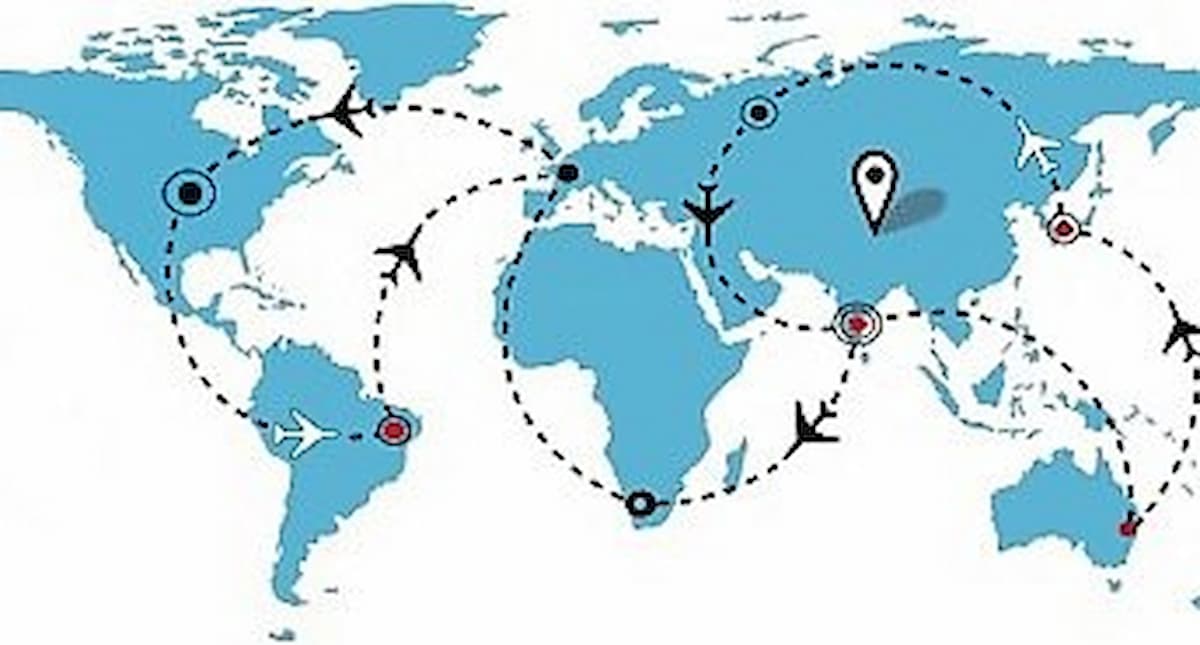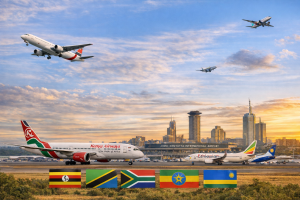Africa’s aspiration for a unified air transport market is facing significant obstacles as a recent analysis carried out by the International Air Transport Association (IATA) reveals a major roadblock: the poor implementation of the existing Bilateral Air Service Agreements (BASAs).
The study examined 607 BASAs across Africa and found that more than half are not being fully implemented by governments across the continent causing African Airlines to continue struggling with fragmented skies. BASAs are agreements that govern international air travel between countries, and they establish rules for designated airlines, including access to major airports. These BASAs are meant to regulate air traffic between countries, but their weak enforcement has continued to hinder the development of a strong internal air transport network.
The lack of compliance thwarts the plans for the Single African Air Transport Market (SAATM), an initiative designed to remove restrictions on airline traffic rights across the continent by simplifying air travel regulations. The initiative has the potential to unlock economic growth through increased trade and tourism but the current situation with BASAs paints a worrying picture.
IATA’s Regional Vice President for Africa and the Middle East, Kamil Alawadhi, recently raised serious questions about the commitment of African governments to SAATM, saying in a recent statement that existing agreements aren’t being properly implemented.
“The Single African Air Transport Market (SAATM) seeks to liberalise civil aviation across the continent by removing restrictions on traffic rights for African airlines. SAATM provides Africa with a ready-made mechanism to drive economic growth, but few governments have taken the steps needed for its implementation. Moreover, an IATA analysis of 607 bilateral air service agreements (BASA’s) in Africa revealed limitations on the development of intra-Africa connectivity because the implementation of over half of these agreements was being compromised.
“Non-compliance of by African governments BASA’s is a major obstacle to achieving seamless regional connectivity and growth in the African aviation sector. To develop economy-boosting intra-Africa connectivity, Africa’s governments must back SAATM with actions,” Alawadhi said.
Domestic operators push for BASA renegotiations
In Nigeria, the situation is peculiar. Domestic airlines say that the BASAs signed by the country in the past have been unfair to them and unfavorable to industry. The Airline Operators of Nigeria (AON) had earlier visited the Minister of Aviation and Aerospace Development, Festus Keyamo, where they presented a detailed proposal on steps the current administration should take to reengineer the sector.
The AON in its presentation to the minister argued that domestic airlines have not been well-represented in past negotiations, leading to huge revenue loss to the nation.
They said it was totally wrong to sideline domestic airlines when signing BASAs, saying the development has favoured the foreign operators who dominate the market.
“Bilateral (BASA) and Multilateral (MASA) Air Services Agreements are premised on the principle of Reciprocity. It typically provides for applicable conditions to designated airlines, typically include provisions for operations out of host country’s primary airport(s). Domestic airlines have not had major contributions in previous negotiations and the lack of domestic representation has resulted in huge capital flight and side-lining of the AON membership,” AON said.
The airlines advocated for a reversal to the air service agreements to create a more balanced environment that benefits domestic airlines and better reflect the Single African Air Transport Market (SAATM) principles, particularly reciprocity, which means airlines from each country get similar benefits. It also said that agreements should encourage investment in domestic airlines and their expansion into international markets.
The AON further proposed a restriction of foreign rights, which is the cancelation of extra freedoms (like carrying passengers beyond their destination) granted to foreign airlines and encourage them to codeshare with domestic airlines instead.
It said: “Renegotiate existing BASA’s & MASAs in line with the provisions of SAATM, with emphasis on the principle of reciprocity to encourage increased investments in the sector. There should be immediate cancellation of all existing 8th & 9th freedom rights allocated to foreign airlines operating within the country and encourage such carriers to codeshare with domestic airlines.
“We call for the immediate renegotiation of all existing BASA’s & MASAs in line with the provisions of SAATM, with emphasis on the principle of reciprocity in favour of domestic airlines aspiring to expand operations into the international and sub-regional markets. Constitute a committee with membership drawn from key industry stakeholders, headed by IATA to review and update the industry civil aviation policy document in line with global standards and trends, and develop an industry 15-year strategic development plan for Implementation.”
Source:The Sun.






